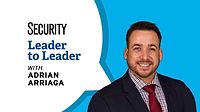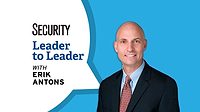Barry Shaul may be the kindest chief security officer (CSO) in the business. Barry has served as a street cop, a special agent at the U.S. Embassy in Rome, and protected the former U.S. Secretary of State Condoleezza Rice. He has gone on to serve in senior leadership corporate security roles at General Mills and now Cargill. When you sit and listen to what Barry has to say, and watch how Barry interacts with and treats people, it is immediately apparent that he is a person driven by strong personal values like kindness and empathy. These values have served him well in his personal and professional life.
How would you describe your transition from policing and diplomatic security into the corporate world? What surprised you?
I would say it was a journey about my personal growth with a lot of intentional soul searching figuring out who I am. What really stood out for me was understanding that what made me successful in one role was not going to help me find success in the next role. What made me an effective police officer does not necessarily make me effective as a special agent, and what made me effective as an agent wouldn’t necessarily make me effective as a corporate security executive.
What surprised me was that, throughout all my transitions, it all really came down to humility — that was the common thread. That’s what I strive to be; and why is that important? Because as the saying goes, “with humility comes wisdom.”
What is something about you that’s not on your resume, but helps to define you as a person?
I’m a kind person. I’m an empathetic person. I like harmony. I take other people’s considerations into account. We should be the energy that we want to receive. With that said, I’m kind, but I’m not naive.
I think that the word “kind” is often looked at as weakness. But how can you really be “too kind?” Now it’s different if you define it as, “indecisive,” “consensus-driven,” or “can’t self-advocate.” But those have nothing to do with being kind. Kind, as defined by the Cambridge Dictionary, is being generous, helpful and thinking about other people’s feelings — all of which requires strength.
Some people have this idea that to be a leader you need to be hard, stoic and never vulnerable. Just because I am kind and empathetic, it doesn’t mean I’m “soft.” Look at one of the greatest Antarctic explorer Ernest Shackleton. Personally, I believe he was the greatest explorer of his time. Although he never made it anywhere first, he never lost a crew member. He put his people first. So, it is possible to be a great leader and be kind and empathetic. A member of the British Antarctic Expedition, led by Captain Robert Scott, wrote in his documented account, Worst Journey in the World, where five men, including Scott himself, were lost, “For a joint scientific and geographical piece of organization, give me Scott; for a winter journey, Wilson; for a dash to the Pole and nothing else, Amundsen: and if I am in the devil of a hole and want to get out of it, give me Shackleton every time.”
What are some strategies you’ve used to help champion your company’s vision or mission?
Well, first off, force and will is not a strategy and some in our industry rely on one or both. Recently, we changed our global security mission statement to “Collaborating across Cargill to identify security risks and provide risk-based, data-driven solutions.” The most important word within that statement is “collaborating.” For me, collaboration means that I understand the ecosystem in which I am operating to achieve defined results — it does not necessarily mean consensus. I engage those who will be impacted by my action and who can provide me a different a perspective. This allows me to be successful in achieving one of Cargill’s core values, “putting people first.” The first sentence defining that core value is, “we put people’s physical and psychological safety above all else.” This declarative statement makes gaining alignment on defined results within my space easy — it’s people’s safety.
What is a book, article or training that you’d recommend for other corporate security leaders that would help them to add more value to their organizations? Why?
I love this question. It’s similar to a question that I always ask people when I interview them. For me, it’s the book, The Four Agreements, by Miguel Ruiz. The “four agreements” that you make with yourself are:
- Be impeccable with your word.
- Don’t take anything personally.
- Don’t make assumptions.
- Always do your best.
Now, I am not perfect with all of these, but I work on them every day. Being a leader requires constant self-reflection. When I began taking time at the end of each day to self-reflect and ask myself if I achieved those four agreements, it had a profound impact on my life — personally and professionally.
What is on your mind for the future of the corporate security function? What do the next five to seven years look like?
We need a paradigm shift from telling stakeholders what we deem valuable to sitting down and actively listening to understand what they deem valuable. So often, we tell stakeholders what the risks are. But we need to flip that on its head. We need to let the stakeholder speak first. Naturally, we share our perspective, but we need to listen first. In any situation where a problem needs to be solved, it is better to understand from where everyone is coming as opposed to simply providing them a solution from your own, myopic perspective. Again, it all comes back to kindness, empathy and humility.
When I think about what success looks like for global security, for me, success is when one of our stakeholders asks for our opinion on a non-security related issue. Then, I will know that they appreciate how we understand the business ecosystem, connect the dots and demonstrate business acumen in adding value — which is defined as: saving time, saving money or solving a problem.





